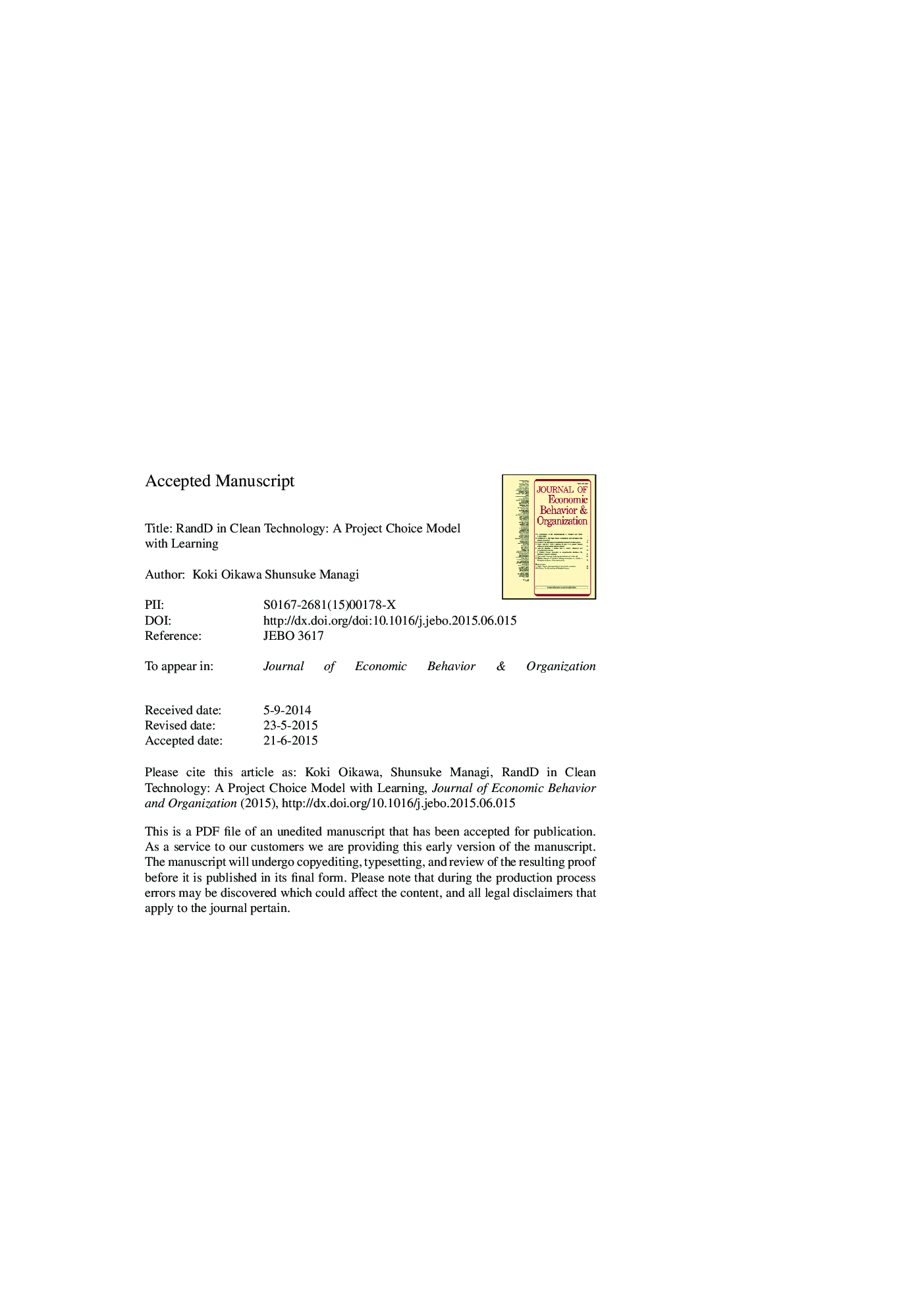| Article ID | Journal | Published Year | Pages | File Type |
|---|---|---|---|---|
| 7243056 | Journal of Economic Behavior & Organization | 2015 | 45 Pages |
Abstract
In this study, we investigate the qualitative and quantitative effects of an R&D subsidy for a clean technology and a Pigouvian tax on a dirty technology on environmental R&D when it is uncertain how long the research takes to complete. The model is formulated as an optimal stopping problem, in which the number of successes required to complete the R&D project is finite and learning about the probability of success is incorporated. We show that the optimal R&D subsidy with the consideration of learning is higher than that without it. We also find that an R&D subsidy performs better than a Pigouvian tax unless suppliers have sufficient incentives to continue cost-reduction efforts after the new technology successfully replaces the old one. Moreover, by using a two-project model, we show that a uniform subsidy is better than a selective subsidy.
Related Topics
Social Sciences and Humanities
Economics, Econometrics and Finance
Economics and Econometrics
Authors
Koki Oikawa, Shunsuke Managi,
